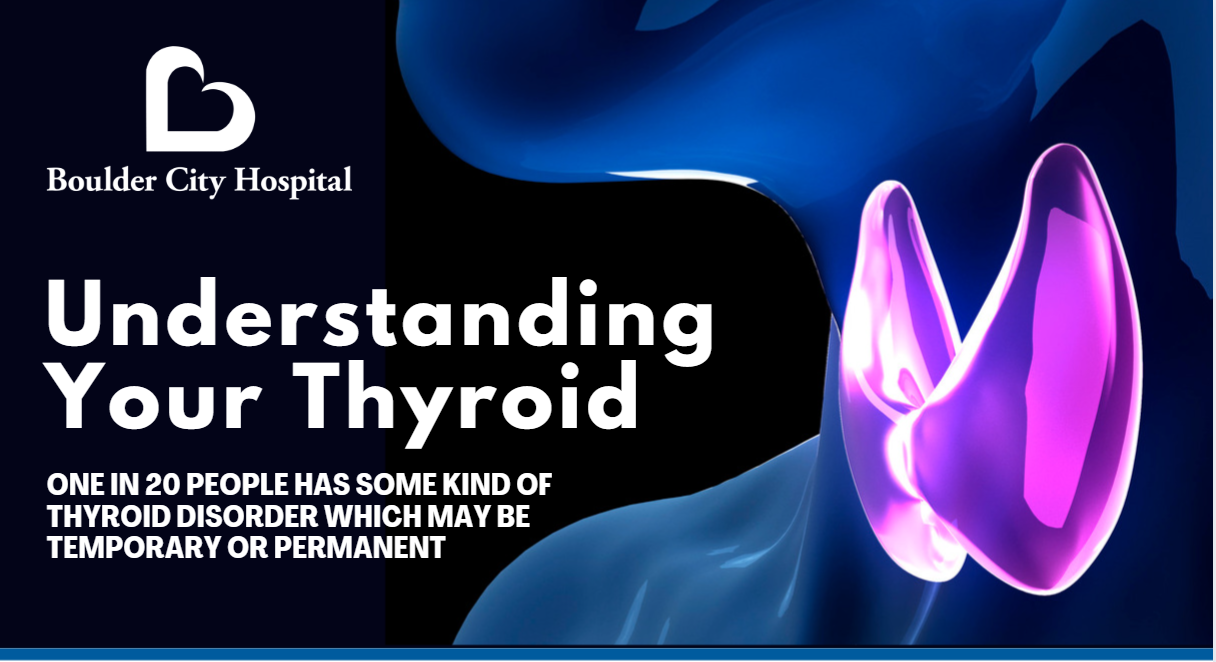 One in 20 people has some kind of thyroid disorder which may be temporary or permanent.
One in 20 people has some kind of thyroid disorder which may be temporary or permanent.
The thyroid gland is a butterfly-shaped endocrine gland located in the front of the neck that secretes two hormones into the blood: thyroxine (T4) and triiodothyronine (T3). These hormones help control many activities in the body including metabolism, breathing, and pumping blood, and have an effect on energy levels, digestion, temperature, and even one’s emotional well-being.
What does the thyroid gland do?
The thyroid makes two hormones that it secretes into the bloodstream. One is called thyroxine; this hormone contains four atoms of iodine and is often called T4. The other is called triiodothyronine, which contains three atoms of iodine and is often called T3. In the cells and tissues of the body, the T4 is converted to T3. It is the T3, derived from T4 or secreted as T3 from the thyroid gland, which is biologically active and influences the activity of all the cells and tissues of your body.
What do thyroid hormones do?
The T4, or rather the T3 derived from it, and the T3 secreted directly by the thyroid gland influence the metabolism of body cells; regulating the speed body cells work.
- When too much of the thyroid hormones are secreted, the body cells work faster than normal, creating an overactive thyroid condition known as hyperthyroidism which can cause an irregular heartbeat as well as frequent bowel motions or diarrhea.
- Hypothyroidism occurs when too little of the thyroid hormones are produced, creating an under active thyroid which can lead to a slower than normal heart rate and sluggish intestines or constipation.
Types of Thyroid Tests
Thyroid Hormone Tests
- Thyroid-stimulating hormone (TSH): Measures the hormone that tells the thyroid gland to produce hormones. High levels indicate an underactive thyroid (hypothyroidism), while low levels indicate an overactive thyroid (hyperthyroidism).
- Thyroxine (T4): The primary thyroid hormone produced by the thyroid gland. Low levels suggest hypothyroidism.
- Triiodothyronine (T3): A less common thyroid hormone, also used to assess thyroid function.
Thyroid Antibody Tests
- Thyroid peroxidase (TPO) antibodies: Indicate an autoimmune condition called Hashimoto’s thyroiditis, which can cause hypothyroidism.
- Thyrotropin receptor (TRAb) antibodies: Indicate an autoimmune condition called Graves’ disease, which can cause hyperthyroidism.
Other Tests
- Calcitonin: May be checked to detect thyroid cancer.
These tests are typically performed by drawing a blood sample from the arm. Your doctor will interpret the results and recommend further tests or treatment if necessary.
Speak to your healthcare provider today about thyroid health.
We’re here for you, when you need us.
Boulder City Hospital
901 Adams Boulevard, Boulder City, NV 90005
Phone: (702) 293-4111


